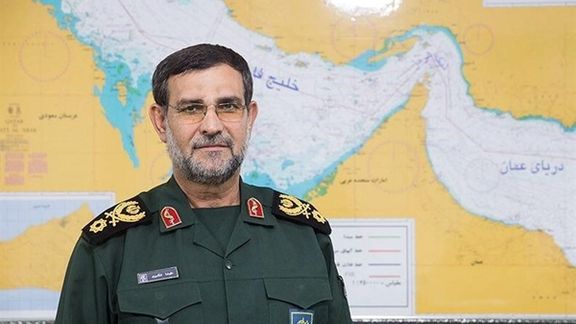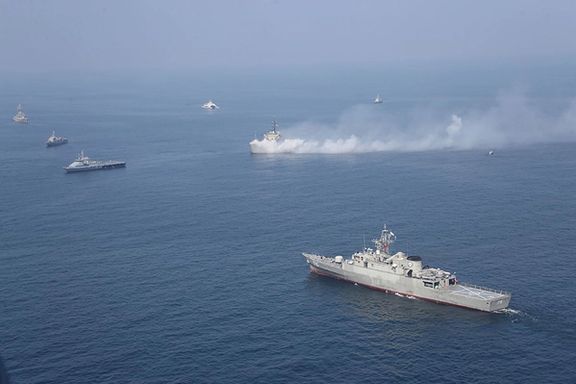Iran Navy Commander Warns Neighbors Not To Allow Israel Into Region

Whoever allows Israel to establish presence in the Persian Gulf will encounter security problems, Iran's IRGC Navy commander warned neighbors on Saturday.

Whoever allows Israel to establish presence in the Persian Gulf will encounter security problems, Iran's IRGC Navy commander warned neighbors on Saturday.
Arab countries such the United Arab Emirates and Bahrain that established full relations with Israel in 2020, have expanded ties, including close intelligence and security cooperation.
Admiral Alireza Tangsiri said, “Today there is satisfactory security with cooperation among neighboring countries in the geographical area of the Persian Gulf,” but if for whatever reason someone allows “the number one enemy” into the region, it will create “chaos and instability” both for itself and for the region.
Israel and Persian Gulf Arab states have long been concerned over Iran’s nuclear program and adventurist regional policies, as well as its rapid expansion of missile technology. They supported former US president Donald Trump’s withdrawal from the Obama-era nuclear agreement and imposition of tough sanctions on Tehran.
But President Joe Biden’s entrance into the scene in 2021 changed the close coordination that existed during the Trump administration, especially between the US and Saudi Arabia, the main Arab power in the region souring.
Biden announced early on that he wanted to revive the nuclear deal with Iran known as the JCPOA and reduced support for Saudi Arabia in the Yemen war, a proxy war with Iran.

Tangisir’s speech on Saturday was not the first instance of warning issued to Arab states in the region. He had also made a similar statement in April, but since then Israel’s cooperation expanded with the Persian Gulf Arab states.
News also emerged on June 9, that a group of US lawmakers calling themselves supporters of the Abraham Accords, or the deal to establish ties between Israel and Arab countries, announced an initiative to create a united fron against Iran with Americans playing a central role.
The legislation proposes that the Pentagon works with Israel to integrate air defenses of six Gulf Cooperation Council countries of Bahrain, Kuwait, Oman, Qatar, Saudi Arabia, and the United Arab Emirates with Egypt, Jordan, and Iraq with the aim of thwarting threats from Iran and Iranian backed-militias across the region.
Reports also speak of secret talks to establish relations between Israel and Saudi Arabia, which has so far remained cool to the idea.
These efforts in effect would create what observers have long dubbed as an anti-Iran NATO and put further pressure on Tehran which remains largely isolated and under the pressure of US economic sanctions.
A year-long diplomatic process between Iran and world powers to revive the JCPOA and lift the sanctions stalled in March, as Tehran insisted on removing the IRGC from the US list of terrorist organizations.
In recent days other Iranian officials have also made statements emphasizing Iran’s military power and readiness to defend the Islamic Republic against threats.